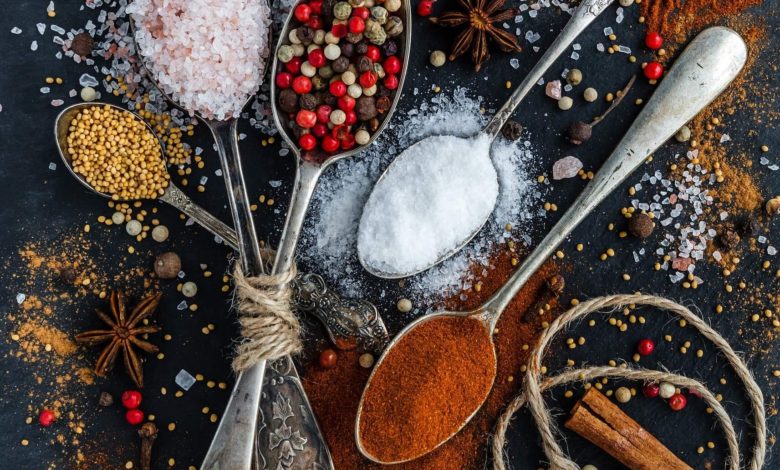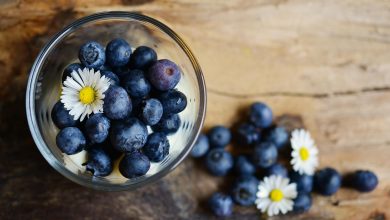Natural Remedies to Treat Gallstones

Gallstones are hard deposits that form in the gallbladder and there are two types. These are as follows:
- Cholesterol gallstones, which are the most common and are made up of excess cholesterol
- Pigment gallstones made up of excess bilirubin
Surgery is a common treatment for gallstones, but it is possible to treat them with natural remedies. This article contains information about natural remedies for gallstones and tips to help prevent this condition.
How Are Gallstones Treated Without Surgery?
Gallstones cause sharp, severe pain in the upper right part of the abdomen. This pain spreads to the back and scapula. Other symptoms are nausea, vomiting, light or gray stools, and diarrhea. Medical help should be sought before attempting to treat gallstones on its own, as it helps to get the correct diagnosis. They can also provide advice on all treatment options. If there is yellowing of the eyes, fever or chills, and severe abdominal pain, seek medical attention immediately.
Gall Bladder Cleaning
There are several reasons why gallstones occur, and these are:
The liver can secrete more bile than it can dissolve.
• There may be too much pigment called bilirubin in the body that cannot be dissolved.
• The gallbladder may not be emptied completely or as required.
Some claims that gallbladder cleaning or washing can help break down gallstones and empty the gallbladder. However, there is no scientific evidence to prove these claims. Still, some people consume a combination of olive oil, fruit juice, and herbs for two or more days. During this time, they should not consume anything other than the oil mixture. There is no standard blend or recipe, and this blend can be dangerous for diabetics or those with low blood sugar. One study looked at the role of olive oil and sunflower oil in gallstones. Researchers have found that olive oil affects bile consumption but not gallstones. Before starting any cleaning, the doctor should be consulted and it may not be safe for all people.
Apple juice
Some people use apple juice to treat gallstones. This is because they believe that apple juice can soften gallstones and help remove stones. This claim, a document published in 1999, details an anecdotal account of a woman who successfully passed gallstones with the use of apple juice. However, there are no scientific studies to support this claim. If the person has diabetes, hypoglycemia, stomach ulcers and other ailments, drinking plenty of fruit juice may not be healthy for the person.
Apple Cider Vinegar
Apple cider vinegar (ACV) is a popular health supplement that is often included in cleansing. Although ACV has positive effects on blood sugar, there are no studies supporting the use of ACV for gallstone treatment. There is little evidence that cleanses are necessary or effective.
Yoga
There are some claims that yoga can help pass gallstones naturally. One study found that yoga is good for improving the lipid profile in people with diabetes. Other study researchers looked at people with cholesterol gallstones and found that people with this type of gallstones were more likely to have abnormal lipid profiles. However, researchers have not found a link between these abnormal levels and the presence of gallstones. While yoga can help relieve some of the symptoms associated with gallstones, there is no scientific evidence to support the use of yoga in the treatment of gallstones.
Thistle
Milk thistle or Silybum marianum can help treat liver and gallbladder ailments. It is thought to stimulate both organs, but researchers have not looked specifically at the benefits of thistle tree for the treatment of gallstones. Milk thistle is available in pill form as a supplement. Before using thistle, it should be discussed with your doctor, especially if you have diabetes. Because milk thistle can lower blood sugar levels in people with type 2 diabetes, it is also possible to be allergic to this plant.
Artichoke
Artichokes have been found to be beneficial for gallbladder function. It helps stimulate bile and is also beneficial for the liver. No studies have looked at the effect of artichoke on the treatment of gallstones. Artichokes can be steamed, pickled or grilled. There is no harm in eating artichokes. Artichokes, sold in pill form or as a supplement, should only be taken after talking to the doctor.
Golden Money Grass
In Traditional Chinese Medicine, gold coin grass or Lysimachiae herba is used to treat gallstones. It has been linked to reduced gallstone formation. Some people recommend taking gold mine weed before starting gallstone removal to help soften stones.
Indian Oil
Castor oil packs are another folk remedy and some people choose to use this method instead of gallbladder cleansing. Warm cloths are turned into oak with castor oil, which is then placed on the stomach. The packs are supposed to relieve pain and help treat gallstones. There are no scientific studies to support the claims that this treatment is effective.
Acupuncture
Acupuncture helps relieve some of the pain from gallstones by reducing spasms, facilitating bile flow and restoring proper function. Acupuncture has been reported to treat gallstones, but more research is needed. A small study of 60 participants was done to look at the effects of acupuncture on cholecystitis. Cholecystitis is an inflammation of the gallbladder and acupuncture has been found to relieve symptoms and reduce the volume of the gallbladder. More research is needed to specifically look at the benefits of acupuncture in the treatment of gallstones. Acupuncture is relatively safe. When choosing an acupuncturist, a licensed acupuncturist must be found and make sure they are using new, disposable needles. Many cities also have community acupuncture centers. Acupuncture is performed in a room with other people instead of in a private setting. Community acupuncture is generally more affordable than private acupuncture.
Other Treatments for Gallstones
Medications and surgery are commonly used to treat gallstones, and these include:
Medication
Two bile acids are usually prescribed to dissolve smaller gallstones, and these include:
• Ursodeoxycholic acid
• Kenodeoxycholic acid
In an earlier study from 1989, Ursodeoxycholic acid was found to help prevent gallstone formation in obese people following very low-calorie diets. It can take up to two years for bile acids to cure gallstones. Gallstones can recur when the person stops taking the drug.
Operation
Surgery is usually the recommended treatment for gallstones. Surgery, known as cholecystectomy, involves removal of the gallbladder, so gallstones do not recur after this treatment. There is no need for a gallbladder to survive, and in most people, the body can compensate for gallbladder loss with minimal side effects.
Tips for Preventing Gallstones
Gallstones are the most common causes, and these are:
• Women
• People aged 40 and over
• People with diabetes
• Obese people
• Pregnant women
• People taking hormonal drugs
• People who eat high-fat diets
Also, a combination of genetics, diet, and lifestyle factors is likely the cause of gallstone formation.
Diet
A 2006 study reported that women who ate more fruit and vegetables had a lower risk of having gallbladder surgery than women who ate less fruit and vegetables. A diet with a variety of vegetables and vegetables is beneficial for supporting gallbladder health and reducing the risk of gallstones, and it is also important to maintain the ideal weight. Some foods make the gallbladder heavier, and these include:
• Egg
• Refined sugar
• Foods containing a lot of saturated fat
• Food allergens
Weight Management
Obesity increases your risk of developing gallstones. Losing weight can be an important part of preventing gallstones, but the way you lose weight is important. Following a very low calorie diet to lose weight can actually increase the risk of gallstones. In the 2013 study, participants implemented a commercial one-year weight loss program. During the program, one group of participants administered a very low calorie diet (500 kcal / day) for 6-10 weeks and the other group followed a low calorie diet (1200-1500 kcal / day) for three months. The group that followed the very low-calorie diet was three times more likely than the other group to develop gallstones requiring hospitalization or surgery.
There is little research on the effectiveness of natural treatments for gallstones. Herbs or supplements sold in the United States are not monitored by the Food and Drug Administration for quality or purity. Any product should be carefully researched, discussed with the doctor and the choice made. If the doctor has recommended surgery, there should be an open discussion about other options to try first.





